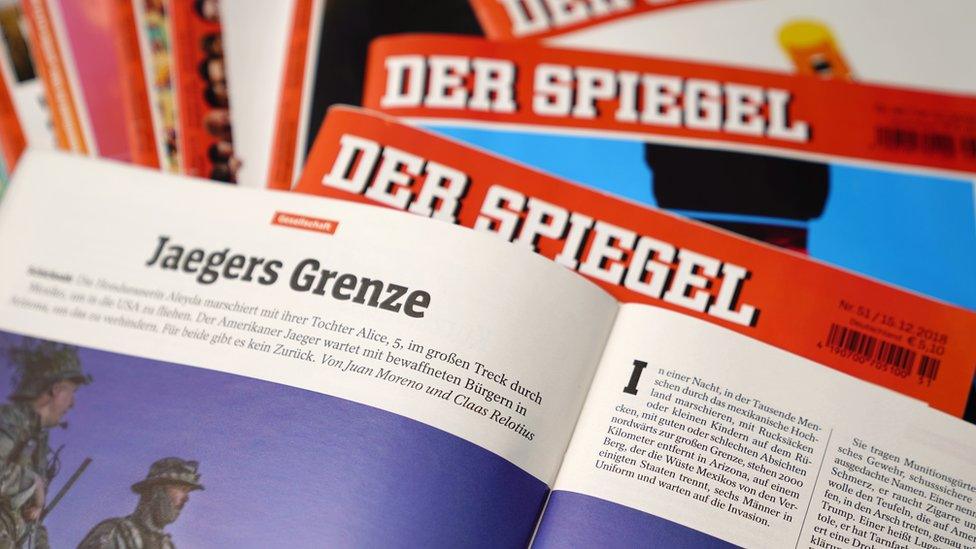Der Spiegel reporter Claas Relotius sacked over 'invented' stories
- Published

Der Spiegel said it was working to establish the full extent of the scandal
German news magazine Der Spiegel has sacked an award-winning staff writer after accusing him of inventing details and quotes in numerous stories.
Claas Relotius "falsified articles on a grand scale and even invented characters", Der Spiegel said.
Among the articles in question are major features that had been nominated for or won awards, the magazine added.
Relotius, 33, admitted deceiving readers in some 14 stories published in Der Spiegel, the magazine said.
In a statement on Wednesday, the German publication said it was working to establish the full extent of Relotius' "fabrications", external after a colleague who worked with him on a story raised suspicions about his reporting.
After initially denying the allegations, Relotius confessed last week to inventing entire passages of text in several instances, Der Spiegel says.
In some articles, he is said to have included individuals he had never met or spoken to, "telling their stories or quoting them".
"By his own admission, there are at least 14 articles," the magazine said, adding: "Could that figure actually be considerably higher?"
Der Spiegel said the reporter's actions were committed "intentionally" and "methodically".
An investigation into a story by Relotius about immigration and the US-Mexican border revealed that he had fabricated information about seeing a hand-painted sign in a town in Minnesota that read: "Mexicans Keep Out."
Fraudulent information appeared in other stories including one about inmates at the US military prison at Guantanamo Bay and another about the US NFL quarterback Colin Kaepernick.
Relotius, who joined the publication as a freelancer in 2011, told the magazine he regretted his actions and was deeply ashamed.
He has written some 60 articles for the magazine, many of which he has said are accurate.
The Hamburg-based publication, which has apologised to its readers, said it was "shocked" by the revelations, describing them as "a low point in Spiegel's 70-year history".
- Published13 December 2017

- Published4 February 2017

- Published28 August 2023
